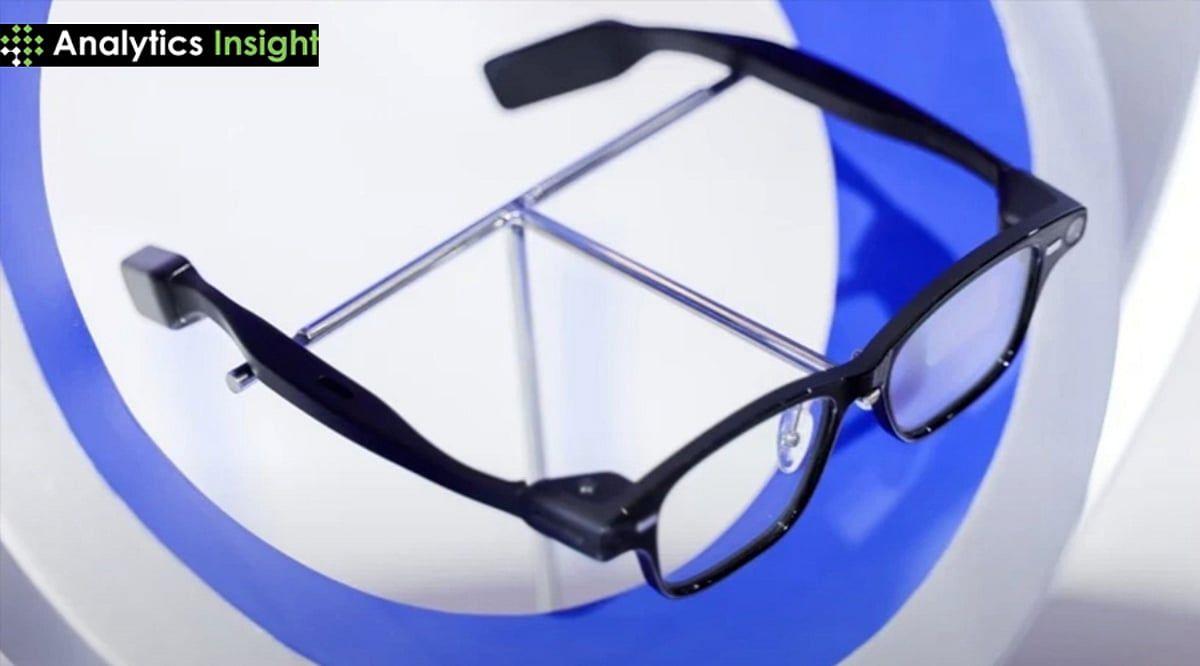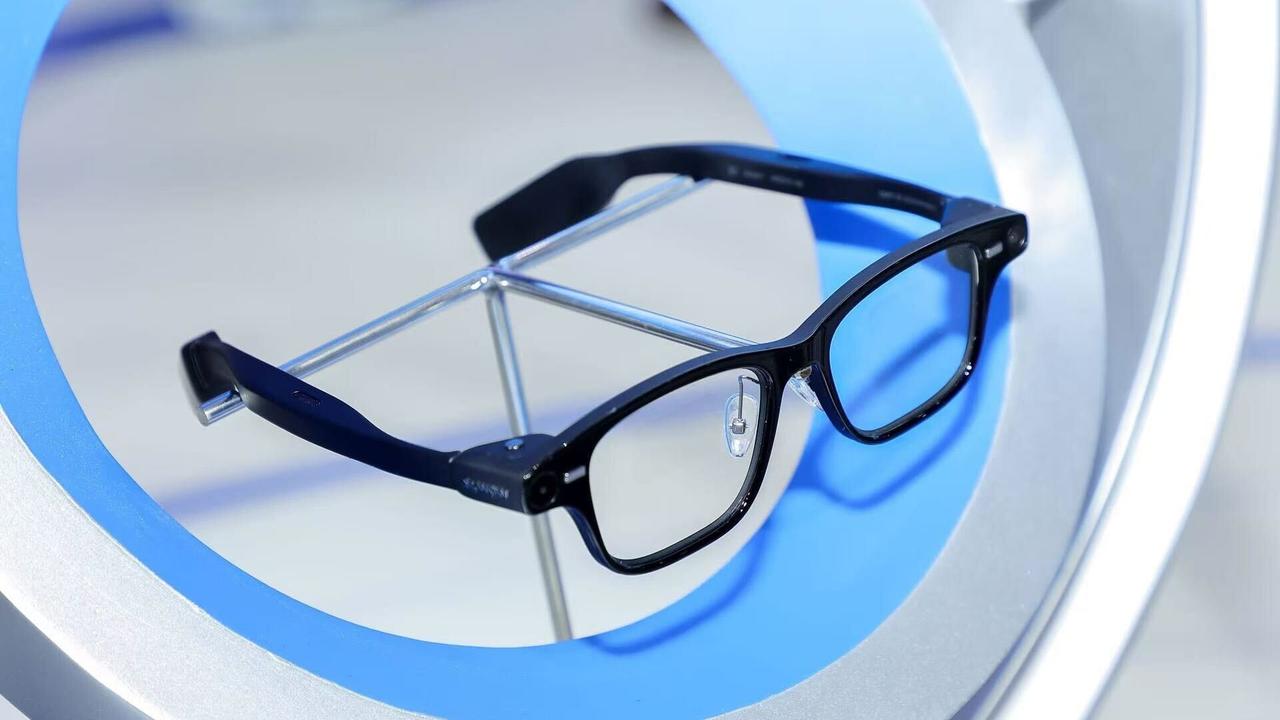Alibaba Enters Smart Glasses Market with Qwen-Powered Quark AI Glasses to Challenge Meta
9 Sources
9 Sources
[1]
China's Alibaba brings removable batteries to the smart glasses race
Alibaba said the Quark AI glasses come in two variants, the S1 flagship and the "lifestyle-focused" G1, in multiple colors and lens types. Prices start at 3,799 yuan ($537) and 1,899 yuan ($268), respectively. The main difference are the lenses, Alibaba said, with the S1 using clear micro-OLED displays. Both have bone conduction microphones, built-in cameras, and a "swappable dual-battery system" that "delivers up to 24 hours of battery life." They're powered by Alibaba's AI model Qwen and a linked app, meaning they can be controlled via voice or touch. Alibaba said the glasses will be integrated with its apps like Alipay and Taobao, as well as music streaming platforms like QQ Music and NetEase Cloud Music. They'll be able to provide services like on-the-go translation, instant price recognition, navigation support, and meeting transcription. International models will be available next year, according to Bloomberg, but those markets haven't been identified. The glasses mark an effort to crack the market for AI-powered wearables tech companies bet could be the next big consumer gadget. Meta, with its Ray-Ban glasses, is the clear leader, but others like Apple, and whatever Sam Altman is developing with Jony Ive, are rushing to catch up.
[2]
Alibaba launches its own AI glasses
Alibaba's Quark AI glasses are now available for purchase in China. The company has released three variants of the flagship S1 model and three of the more affordable G1 model. They both connect to Alibaba's newly launched Qwen App, powered by the company's own AI tech, for AI assistance through voice commands and touch controls. Their features include on-the-go translation and AI-generated meeting notes. As you'd expect, they're deeply integrated with Alibaba's ecosystem and come equipped with apps that include Alipay and Taobao, an online shopping platform owned by the company. They have popular Chinese music streaming services, like QQ Music, as well. Similar to Meta's Ray-Ban Display, the glasses' lenses serve as screens, though the S1 is equipped with more expensive micro-OLED technology. It also has more powerful dual chips. In addition, the S1 can produce better images (up to 3K in quality) and videos (AI-enhanced 4K), and it was designed to perform better in low-lighting conditions. Meanwhile, the G1 is lighter and was built for everyday wear. It's not quite clear if Alibaba plans to release the glasses outside China, but both models are now up for sale on Chinese e-commerce platforms. The S1's prices start at ¥3,799 ($537), whereas the G1 will cost buyers at least ¥1,899 ($268).
[3]
Alibaba's AI glasses to rival Meta go on sale for $500
The company said that some of the features include on-the-go translation, AI-generated meeting notes and the ability to ask the virtual assistants questions. Users take pictures of a product using the camera in the lens and then the device will show the price of that product on Taobao, Alibaba's main shopping app in China. Alibaba, like other technology companies such as U.S. giant Meta, are betting that smart glasses could be the next big consumer device after the smartphone. In September, Meta unveiled the $799 Meta Ray-Ban Display glasses, the social media company's first consumer-ready smart glasses with a built-in display. Users can control the device via hand gestures with a special wristband. Alibaba's glasses will initially go on sale in China and compete with domestic rivals, including consumer electronics maker Xiaomi and startup Xreal. The smart glasses market is still small but growing rapidly. By 2026, shipments of AI glasses are expected to exceed more than 10 million units, doubling from 2025, according to a forecast from Omdia. For Alibaba, the glasses are its latest play in the consumer AI market as it looks to build on its recent successes. The company's ChatGPT-style Qwen app got 10 million downloads in the first week of the public beta launch. Meanwhile, Alibaba's cloud computing business, where it books much of its AI-relate revenue, saw an acceleration of growth in the last quarter. The Hangzhou, headquartered company is one of the leaders in China's AI space, and has been investing aggressively in AI alongside rival giants like Baidu and Tencent, and aggressively launching new models.
[4]
Alibaba takes on Meta with Qwen-powered Quark AI Glasses
Alibaba has entered the wearables market with Quark AI Glasses, which has its ChatGPT rival Qwen built in. As the battle around smart glasses heats up, amid new AI-powered versions, Chinese retail and technology giant Alibaba has officially entered the market with its Qwen-powered Quark AI Glasses now officially available for purchase. According to an IDC report published in October, the global wearables market is growing fast, with 136.5m units shipped in Q2 2025, an almost 10pc increase year-on-year, with over 60pc of these units accounted for by eyewear. Notwithstanding the push from Meta, China continues to be the biggest driver, accounting for some 50m of those units shipped. Now Chinese retail and technology giant Alibaba has entered the fray with its Quark AI Glasses going on sale this week. While still relatively niche, the smart glasses battle has been heating up in recent times, with Apple entering the fray, reportedly pausing work on a cheaper and lighter variant of its Vision Pro headset and pivoting towards smart glasses that compete with Meta. "Glasses are going to be the next major computing platform," Meta CEO Mark Zuckerberg claimed last year. His belief is that the tech will slowly replace smartphones in the 2030s. Meta has been working on smart glasses for a number of years, releasing the Ray-Ban Stories in 2021 and Ray-Ban Meta in 2023. The company's latest development in the line, the Meta Ray-Ban Display glasses, retail for $799, and come with AI capabilities - although the glasses failed a public demonstration in a glitch-filled performance in Zuckerberg's own hands earlier this year. The new Quark AI Glasses are already available for purchase on major Chinese e-commerce platforms like Tmall, JD.com and Douyin, and Alibaba says it is rolling out in 604 partner optical stores across 82 cities in China. It's a first foray by Alibaba into the consumer tech hardware market, as it bets on the proliferation of smart glasses powered by AI. Starting at ¥3,799 ($540) the Quark AI Glasses S1 has dual micro-OLED displays, dual chips, and advanced voice pickup with bone conduction technology. Alibaba says its "industry-first swappable dual-battery system" will delivers up to 24 hours of battery life. The display-free G1 model starts at just ¥1,899 ($270), with all the similar hardware except the display. "AI glasses are a uniquely powerful wearable as they consist of everything we envision for an AI assistant," said Wu Jia, vice president, Alibaba Group. "Looking ahead, AI glasses open the door to a revolutionary way of connecting and interacting with computers in the AI era. With Quark AI Glasses deeply integrated with Qwen, users can access Qwen anytime, anywhere, enabling the AI to connect seamlessly with the real world and deliver value at an unprecedented scale." While it still hard to predict if Mark Zuckerberg's prediction that smart glasses will one day replace smartphones is realistic, the Quark AI glasses might give us a peek into the future with their more light-weight, less-clunky design making them more 'wearable'. Time will tell. Don't miss out on the knowledge you need to succeed. Sign up for the Daily Brief, Silicon Republic's digest of need-to-know sci-tech news.
[5]
Alibaba launches Quark AI glasses in two distinct price tiers
Alibaba launched its Quark AI glasses in China, releasing three variants each of the flagship S1 model and the affordable G1 model. These glasses connect to the newly introduced Qwen App, powered by Alibaba's AI technology, to provide assistance through voice commands and touch controls. The Quark AI glasses integrate features such as on-the-go translation and AI-generated meeting notes. They link deeply with Alibaba's ecosystem, incorporating applications like Alipay for payments, Taobao for online shopping, and QQ Music for streaming Chinese music services. This integration allows users to access these services directly from the glasses, enhancing convenience in daily tasks. Similar to Meta's Ray-Ban Display glasses, the lenses in Alibaba's Quark AI glasses function as screens for displaying information. The S1 model employs advanced micro-OLED technology in its lenses, which provides higher quality visuals compared to standard displays. Additionally, the S1 features more powerful dual chips that enable efficient processing of AI functions and multimedia tasks. The S1 model captures images at up to 3K resolution and records AI-enhanced 4K video. Its design optimizes performance in low-lighting conditions, making it suitable for various environments, from indoor settings to nighttime use. These capabilities support the glasses' AI-driven features, ensuring clear and accurate data capture for translation or note generation. In contrast, the G1 model prioritizes lightness and comfort for everyday wear. It maintains the core connectivity to the Qwen App and ecosystem integration but focuses on portability without the advanced hardware of the S1. This makes the G1 appropriate for prolonged use in routine activities. Alibaba has not specified plans for releasing the Quark AI glasses outside China. Both the S1 and G1 models are currently available for purchase on Chinese e-commerce platforms. The S1 starts at ¥3,799, equivalent to $537, while the G1 begins at ¥1,899, or $268.
[6]
Alibaba starts selling Quark AI glasses in China, enters global wearables race
Alibaba has entered the AI wearables market with its Quark glasses, aiming to challenge Meta's dominance. Priced from 1,899 yuan, these glasses are powered by Alibaba's Qwen AI model and promise deep integration with popular apps like Alipay and Taobao for tasks like instant translation and price recognition. Alibaba released on Thursday its new Quark artificial intelligence glasses in China, heralding the Chinese tech company's efforts to break into the AI wearables market dominated by Meta globally. Prices will start from 1,899 yuan ($268.25) for the headset that will be powered by Alibaba's Qwen AI model and app. Unlike other headsets made by the likes of Meta, the Quark glasses look like regular eyewear, with a black plastic frame. Alibaba said the glasses would be deeply integrated with its apps such as payment app Alipay and its shopping site Taobao, with users able to use it for tasks such as on-the-go translation and instant price recognition. The company is making an aggressive push into the consumer AI market after having historically lagged rivals. Earlier this month it launched a major upgrade to its AI chatbot. The race to find new forms of devices for entertainment and computing, underpinned by AI, has fueled a battle among the biggest technology companies. Instagram-owner Meta overwhelmingly dominates the VR headset industry with about an 80% market share. Apple sells its Vision Pro headset while Samsung Electronics released its Galaxy XR extended reality headset in October that uses AI features from Alphabet's Google. Other Chinese tech companies have also launched similar AI-powered glasses. Xiaomi launched a product in June, while Baidu already has a similar product being sold.
[7]
Alibaba Calls Its New AI Glasses The 'Next Mobile Phone' - Alibaba Gr Hldgs (NYSE:BABA)
Alibaba Group Holding Ltd. - ADR (NYSE:BABA) launched its first artificial intelligence glasses in China on Thursday, accelerating its push into the fast-growing smart wearables market. * BABA is facing resistance from sellers. See what is driving the movement here. The new Quark artificial intelligence (AI) Glasses -- named after Alibaba's Quark AI assistant -- come in two lines: the flagship S1 with three variations and the lightweight G1, also with three versions. "AI glasses are the intelligent devices that truly usher in a revolution in human-computer interaction in the AI era," Alibaba vice-president Wu Jia told SCMP. "Their importance is no less than that of mobile phones." Also Read: Alibaba's New AI Glasses Let You Pay, Navigate, And More Alibaba priced the S1 starting at 3,799 yuan ($537). Alibaba sees smart glasses as the next major consumer platform after smartphones -- a view shared by global competitors such as Meta Platforms Inc (NASDAQ:META), Apple Inc (NASDAQ:AAPL) and Samsung Electronics Co Ltd (OTC:SSNLF) -- and a strategic way to capture the next generation of user traffic in China's increasingly competitive e-commerce and consumer AI markets. The model features a dual-chip system powered by Qualcomm Inc's (NASDAQ:QCOM) Snapdragon AR1 processor and a low-power coprocessor. The company said the S1 offers hands-free assistance for daily tasks -- including real-time translation, navigation, payments, and responses to user questions -- through the Quark assistant and Qwen AI, Alibaba's ChatGPT-style model. The G1, priced from 1,899 yuan and weighing 40 grams, shares the S1's core hardware without the display, offering a lighter alternative focused on camera and AI functions. Alibaba positioned the Quark lineup as a direct competitor to Meta's Ray-Ban Display glasses, released in September for $799 with a full-color display. Apple is developing multiple head-mounted devices with launches expected by 2027, aiming to leap ahead of Meta's Ray-Ban smart glasses lineup. Snap Inc (NYSE:SNAP) is also preparing lightweight AR glasses to join the race. Amazon.com Inc (NASDAQ:AMZN) added to the momentum by unveiling AI-powered smart delivery glasses that provide drivers with hands-free navigation, package identification and real-time task updates. The system uses computer vision and geospatial mapping to boost delivery safety and efficiency, with more driver-assist features on the way. Alibaba's Quark glasses include a monochrome green display on the S1, along with bone-conduction microphones, built-in cameras, and a swappable dual-battery system that supports up to 24 hours of use. The company previewed the glasses in July, sparking early interest, and began presales in late October on major Chinese e-commerce platforms, including Taobao, JD.com Inc (NASDAQ:JD) and Douyin. The release follows a surge in the global smart glasses market -- with shipments more than doubling in the first half of 2025, driven largely by Meta's products, according to Counterpoint Research. Chinese rivals are also ramping up competition. Xiaomi Corp (OTC:XIACY) launched a 1,999-yuan model in June, Baidu Inc.'s (NASDAQ:BIDU) Xiaodu AI Glass Pro went on sale this month for 2,299 yuan, and Rokid introduced its lightweight device priced from 2,199 yuan in partnership with eyewear brand Bolon. Alibaba emphasized the deep integration of Quark AI Glasses with its extensive app ecosystem. It included enabling seamless access to Amap mapping, Taobao shopping searches, Fliggy travel bookings and Alipay mobile payments via Ant Group. The company is also expanding partnerships with external services -- including QQ Music and NetEase Inc (NASDAQ:NTES) Cloud Music -- to unify experiences across shopping, travel, entertainment, and productivity. A camera in the lens lets users scan products and instantly view Taobao pricing. Other features include AI-generated meeting notes, image recognition, real-time navigation cues, and 3K photo + 4K AI-upscaled video capture using Alibaba's Super Raw image enhancement. BABA Price Action: BABA shares were down 1.35% at $155.47 in pre-market trading on Friday. Read Next: Amazon Enters AR Glasses Race Against Meta's Hypernova And Apple's Lagging Vision Pro Photo: Shutterstock BABAAlibaba Group Holding Ltd$155.35-%OverviewAAPLApple Inc$278.20-%AMZNAmazon.com Inc$230.80-%BIDUBaidu Inc$117.44-%JDJD.com Inc$29.82-%METAMeta Platforms Inc$635.90-%NTESNetEase Inc$137.750.12%QCOMQualcomm Inc$165.40-%SNAPSnap Inc$7.64-%SSNLFSamsung Electronics Co Ltd$65.21-%XIACYXiaomi CorpNot Available-%Market News and Data brought to you by Benzinga APIs
[8]
Alibaba Launches Qwen AI-Powered Smart Glasses to Challenge Meta's Ray-Ban Model
Alibaba's S1 Smart Glasses Offer Brighter Micro-LED Displays and Cost Nearly 30% Less Than Meta's New Ray-Ban Model Alibaba has launched its first pair of smart glasses, Quark AI Glasses. This move is part of the company's push into consumer AI and smart devices. The glasses are now available in China, with prices starting at 1,899 yuan (approximately $268) for the G1 model. The premium S1 model costs 3,799 yuan (approximately $536). The glasses use Alibaba's Qwen AI app, similar to ChatGPT. This lets users control the glasses with their voice. The glasses can show translations, take AI-generated meeting notes, and answer questions. They also let users scan products with the camera and check prices on Taobao, Alibaba's shopping app.
[9]
Alibaba enters the smart glasses market with Qwen AI
On Thursday Alibaba launched its first artificial intelligence-powered smart glasses, called Quark AI Glasses, marking a new step in its strategy to expand into consumer AI. Available in two models, the S1 at 3,799 yuan (around $536) and the G1 at 1,899 yuan (around $270), the glasses aim to compete with the Ray-Ban Display from Meta and EssilorLuxottica, which have been on the market since September. Equipped with the Qwen models developed by Alibaba, they enable voice interactions with the AI, instant translation and the generation of summaries. The Quark AI Glasses feature displays embedded in the lenses and an onboard camera, with a notable function that can recognize a product and display its price via Taobao. The S1 model stands out for its superior display quality. Initially intended for the Chinese market, these glasses are already facing local competitors such as Xiaomi and Xreal. According to Omdia, global sales of smart glasses could exceed 10 million units in 2026.
Share
Share
Copy Link
Alibaba launches Quark AI glasses in China with two models (S1 and G1) featuring removable batteries, AI integration, and ecosystem connectivity. The glasses aim to compete with Meta's Ray-Ban smart glasses in the growing wearables market.
Alibaba Launches Quark AI Glasses to Challenge Meta's Dominance
Chinese tech giant Alibaba has officially entered the smart glasses market with the launch of its Quark AI glasses, now available for purchase across China. The company has released two distinct models targeting different consumer segments: the flagship S1 and the lifestyle-focused G1, marking Alibaba's first major foray into consumer hardware
1
.
Source: Analytics Insight
The S1 model, priced starting at ¥3,799 ($537), features advanced micro-OLED display technology and dual chips for enhanced processing power. In contrast, the G1 model starts at ¥1,899 ($268) and prioritizes lightweight design for everyday wear while maintaining core AI functionality
2
.
Source: ET
Revolutionary Battery Technology and Hardware Features
A standout feature of both models is Alibaba's "industry-first swappable dual-battery system" that delivers up to 24 hours of battery life, addressing one of the key limitations of current smart glasses in the market
4
. Both variants include bone conduction microphones and built-in cameras, enabling hands-free operation through voice commands and touch controls.The S1 model distinguishes itself with superior imaging capabilities, capturing photos at up to 3K resolution and recording AI-enhanced 4K video. Its design optimizes performance in low-lighting conditions, making it suitable for various environments from indoor settings to nighttime use
5
.AI Integration and Ecosystem Connectivity
The glasses are powered by Alibaba's Qwen AI model and connect to the newly launched Qwen App, which recently achieved 10 million downloads in its first week of public beta launch
3
. This integration enables features such as on-the-go translation, AI-generated meeting notes, and the ability to ask virtual assistants questions.
Source: Engadget
Deep integration with Alibaba's ecosystem sets these glasses apart from competitors. Users can access Alipay for payments, Taobao for online shopping, and popular Chinese music streaming services like QQ Music and NetEase Cloud Music directly through the glasses
1
. A particularly innovative feature allows users to photograph products and instantly receive pricing information from Taobao.Related Stories
Market Competition and Industry Outlook
The launch positions Alibaba as a direct competitor to Meta's Ray-Ban smart glasses, which retail for $799 and represent the current market leader in AI-powered wearables
3
. The smart glasses market, while still relatively niche, is experiencing rapid growth with shipments expected to exceed 10 million units by 2026, doubling from 2025 levels according to Omdia forecasts.China continues to drive significant growth in the wearables market, accounting for approximately 50 million of the 136.5 million units shipped globally in Q2 2025, representing a nearly 10% year-over-year increase
4
. Alibaba will compete with domestic rivals including consumer electronics maker Xiaomi and startup Xreal in the Chinese market.Availability and Future Plans
The Quark AI glasses are currently available on major Chinese e-commerce platforms including Tmall, JD.com, and Douyin, with rollout planned across 604 partner optical stores in 82 Chinese cities
4
. While international models are expected to be available next year according to Bloomberg, specific markets have not yet been identified1
.References
Summarized by
Navi
[2]
[4]
Related Stories
Recent Highlights
1
OpenAI secures $110 billion funding round from Amazon, Nvidia, and SoftBank at $730B valuation
Business and Economy

2
Anthropic stands firm against Pentagon's demand for unrestricted military AI access
Policy and Regulation

3
Pentagon Clashes With AI Firms Over Autonomous Weapons and Mass Surveillance Red Lines
Policy and Regulation








